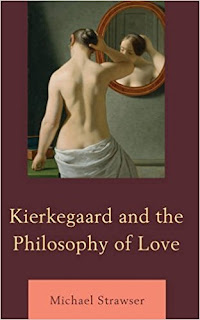
zei Henry E. Allison in het interview dat Steven A. Gross op
29 november 1995 met hem had [cf. PDF].
Of hij dit deed en of dit tot nieuwe publicaties leidde is mij niet bekend.
Ik attendeer hier graag op de teksten van hem over Spinoza die
op internet te vinden zijn. Henry Edward Allison (80 jaar) is Professor Emeritus of Philosophy at the University of California, Davis, and a foremost interpreter of the work of Immanuel Kant, Spinoza, German Idealism, and eighteenth and nineteenth-century philosophy. [cf. & cf; maar toch vooral met Kant zoals ook blijkt uit zijn pagina bij academia.edu, waar alleen publicaties over Kant te vinden zijn). Maar hij heeft zich enige malen ook intensief met Spinoza bezig gehouden.
We kennen hem op dit blog vooral vanwege zijn lezing en
artikel
• Henry E. Allison, “The Eternity of Mind: Comments on Matson
on Spinoza." In: Edwin Curley & Pierre-François Moreau (Eds.), Spinoza: Issues and Directions, [The Proceedings of the Chicago Spinoza
Conference (1986: Chicago, Ill.)]. Leiden: Brill, 1990, pp 96-101 – In z'n geheel te lezen bij books.google
Abstract
In
"Body Essence and Mind Eternity in Spinoza", Wallace Matson has made
an insightful and suggestive attempt to defend a literal reading of Spinoza's
doctrine of the eternity of the mind. Spinoza, according to Matson, means just
what he says when he claims that "The human Mind cannot be absolutely
destroyed with the Body, but something of it remains which is eternal".
The most valuable aspect of Matson's account is his discussion of essence in
Spinoza. In brief, his view is that the essence of a particular thing is its
intrinsic nature or structure considered as a pure possibility, in abstraction
from its concrete realization in the order of nature. The troublesome claim
that something of the mind "remains which is eternal" can be taken
merely to indicate that there is some "eternal" aspect to the mind
that has not yet been considered.


